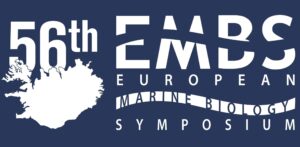Narissa Bax
Keynote
Dr Narissa Bax, a marine ecologist, has been leading international research projects in diverse remote regions including Antarctica, the Sub-Antarctic, and the South West Atlantic. Despite being in the early stages of her career, her contributions to scientific research have garnered notable recognition. Her collaborative research into Antarctic blue carbon was cited in a joint report produced by the Intergovernmental Panel on Climate Change (IPCC) and the Intergovernmental Science-Policy Platform on Biodiversity and Ecosystem Services (IPBES). This recognition was followed by her selection as one of Australia’s ‘100 Climate Conversations’, an honour bestowed by the Powerhouse Museum. In addition, she actively voiced deep-sea concerns at the COP-27 meeting as a representative of the Deep Ocean Stewardship Initiative (DOSI) delegation. Now, Dr Bax’s research focuses on studying blue carbon in giant kelp forests and seafloor habitats, gathering data crucial for managing prospective marine protected areas in the Falkland Islands and sub-Antarctic. In 2021, she initiated the sub-Antarctic Blue Carbon and Natural Archives network, coordinating over 50 international researchers. In 2023, she expanded her research scope by leading the first marine eDNA project in the Falkland Islands, revealing potential novel biodiversity within giant kelp forests. Currently, she serves on the GOOS BioEco panel, leading the creation of a cold water coral specification sheet as an Essential Ocean Variable (EOV). Looking forward, Dr Bax is set to embark on two key expeditions. The first targets Bird Island in the Falkland Islands, with an aim to explore the newly documented mesophotic biodiversity, which includes extensive coral gardens and rhodolith beds. A subsequent expedition, planned in collaboration with French researchers, will focus on the sub-Antarctic Islands of Crozet, Amsterdam, and Kerguelen.
komum contact
Oranizing committee
- Haseeb Randhawa
Stay in the Loop
- Programme
- Registration
- Contact Us

